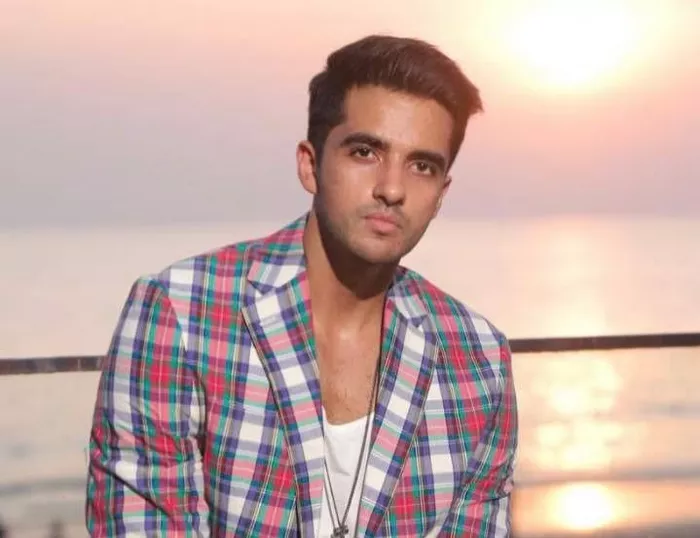In the realm of Indian classical music, the revered guru-shishya parampara has long played an indispensable role in nurturing exceptional talent. Its profound impact is evident in the journey of Jashan Bhumkar, a multifaceted Marathi actor and classical singer. Today, on the oc case of Teacher’s Day, we delve into the profound influence Bhumkar’s gurus have had on shaping him both as a musician and as a compassionate human being.
Renowned for his soul-stirring renditions of ghazals, abhangs, and other classical genres, Bhumkar’s musical repertoire encompasses a wide range of emotive expression. Notably, he released his own classical rendition of “Rangi Sari Gulabi Chunariya,” a timeless compos ition contemporised by Kavitha Seth from the revered thumri collection of the late classical singer Shobha Gurtu.
Bhumkar’s versatility extends beyond the realm of classical singing. He lent his remarkable voice to the title track of the award-winning theatrical play “Don’t Worry Ho Jayega” from Zee Marathi, infusing it with a captivating jazz flavor.
Embarking on his musical journey at the tender age of five, Bhumkar soon emerged as a young prodigy of classical music, eventually earning recognition on the esteemed All India Radio talk show “Yuva Tarang.” His performances captivated audiences not only through radio broadcasts but also on platforms like Doordarshan and USA National Radio.
With over two decades of devoted commitment to Hindustani classical music, Bhumkar stands as a proud disciple of the late Gaanasaraswati Kishoritai Amonkar. His rigorous training has been enriched further by the invaluable guidance of esteemed stalwarts such as Pand it CA Agarkar and Gaayogini Dhondutai Kulkarni, representing the Jaipur-Atrauli gharana in its purest form.
In an exclusive conversation with The Indian Express, Jashan Bhumkar shares insights into his journey and the profound influence of his gurus. The following are edited excerpts from the interview:
When it comes to learning classical music, how do you go about choosing your guru?
The journey of learning classical music is a two-way street. As a student, trust and unwavering faith in one’s guru are paramount. A guru possesses a profound foresight that may not immediately resonate with us, but through steadfast faith and the passage of time , the purpose behind their teachings becomes clear.
Similarly, a guru selects their disciples with equal care, ensuring a willingness to impart knowledge unreservedly and without hesitation.
Who, among your gurus, holds a special place in your heart? How have they transformed you?
I have been fortunate to immerse myself in the traditional guru-shishya parampara, wholeheartedly surrendering to my mentors’ wisdom. They have sculpted not only my musical identity but also shaped my character as a compassionate human being. My journey has been illuminated by the guidance of Pt C A Agarkar, Gaanyogini Smt Dhondutai Kulkarni, Padmavibhushan Gaansaraswati Smt Kishori Amonkar, Smt Maya Upadhyay, Pt Raghunandan Panshikar, and Pt Sanjeev Chimmalgi.
Particularly, I hold a deep reverence for Dhondutai, affectionately known as ‘Bai.’ Having commenced my training within the Jaipur gharana, her name and legacy had always resonated within me. After months of persistence, I connected with her through the author Namita De vidayal , one of Bai’s senior disciples. Such serendipitous encounters have been a true blessing.
What sparked your interest in pursuing classical singing at such a young age?
Music has been an intrinsic part of my life since I can remember. I was naturally drawn to the profound beauty of classical music from an early age. Although no one in my family pursued music professionally, I always felt an innate connection to the art form and knew deep within that it was my destiny to sing classical music.
Who has had the most significant impact on your life?
In the realm of music, my guru Smt Kishori Amonkar has undeniably been the guiding light and the most influential figure. Her philosophy, both in regards to music and life itself, continues to resonate with me to this day. I strive to embody her teachings in every facet of my life.
Beyond music, my late grandfather, Shri C J Bhumkar, holds a special place in my heart. His unwavering dedication to hard work and his insatiable thirst for knowledge have greatly influenced me. Until his very last breath, he remained a true student, a perpet ual learner. In addition to music, he instilled in me a love for science and chemistry, which I pursued by studying chemical engineering.
How has classical music evolved since your early years?
Classical music is timeless, transcending generations. The ragas themselves are eternal and belong to all souls throughout time. While peripheral changes may occur, aimed at preserving the essence of the music, its core remains constant. I firmly believe that we are currently experiencing a renaissance in classical music. I am highly optimistic about its future, witnessing an increasing appreciation for the enchantment of live performances and a growing interest among the younger generation, particularly in thematic programs.
How has your approach to your craft transformed over the years?
It is a captivating query indeed. Each day I find myself falling deeper in love with music, as it continues to infuse profound significance into my existence. Over time, music has evolved from being a mere pursuit to becoming an inseparable part of my being.
What is one fundamental principle you adhere to in your musical journey?
Music is a language, a means of communication through emotion. Devoid of feeling, music loses its essence.
What advice would you give to budding musicians?
Echoing the words of the Ustads, I too urge the cliché of “Riyaaz karo!” There is simply no substitute for rigorous practice. Moreover, in this era driven by instant validation and fads, let us not lose sight of what is everlasting and enduring .

